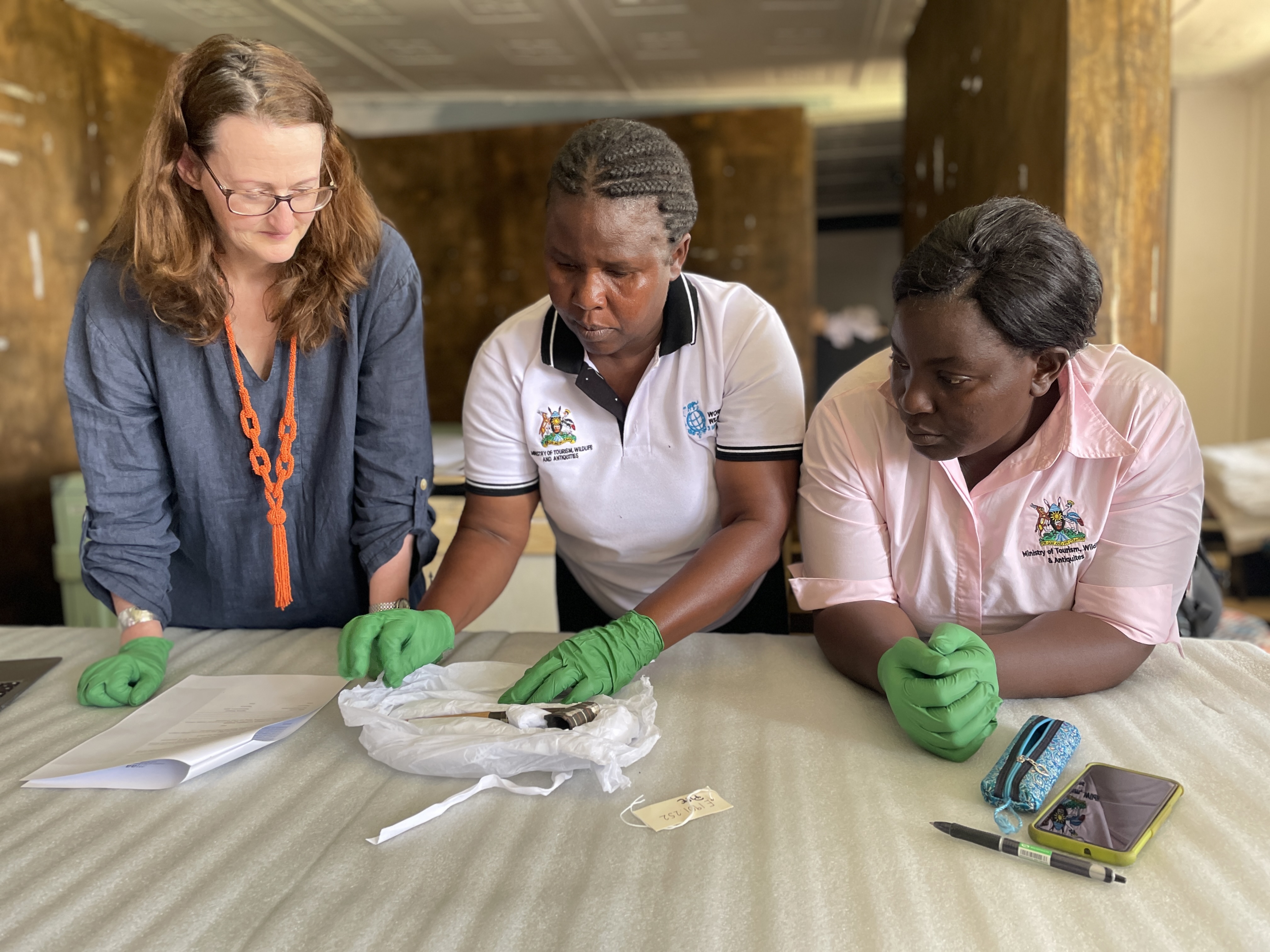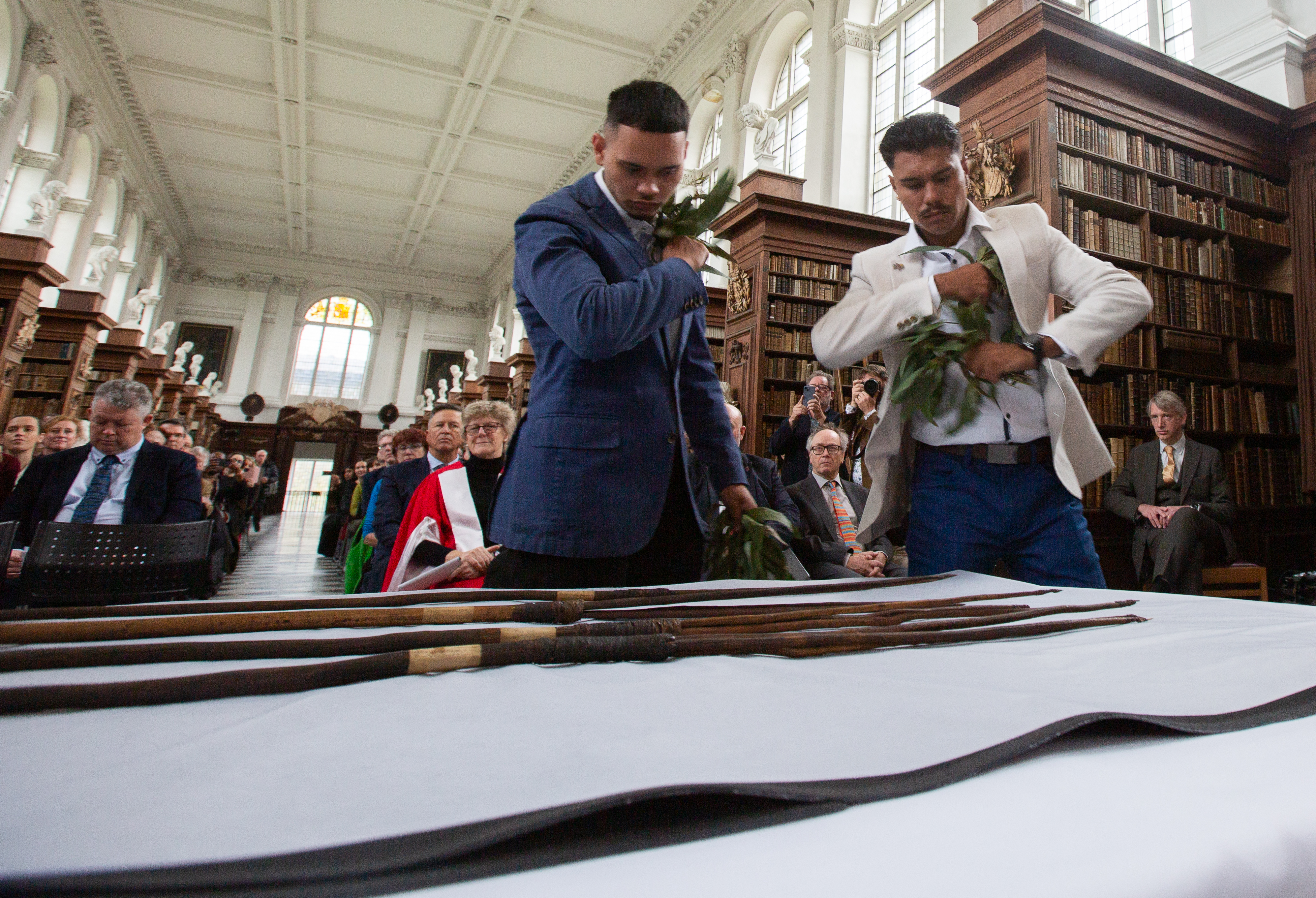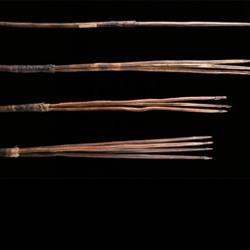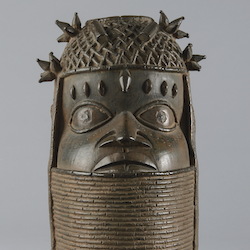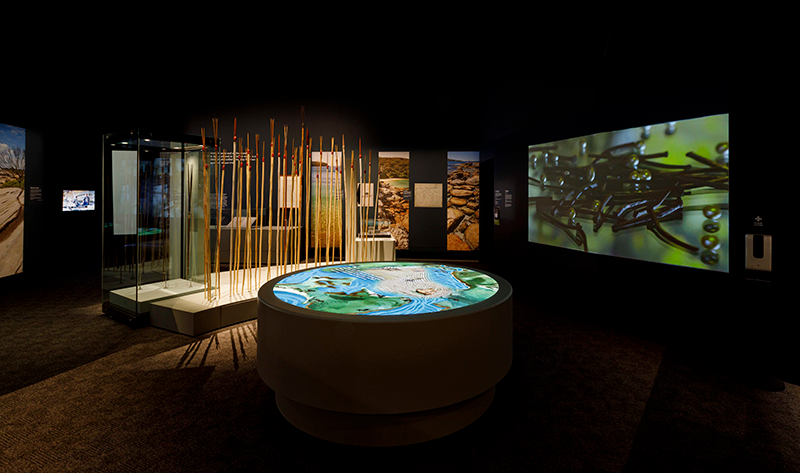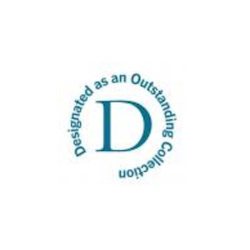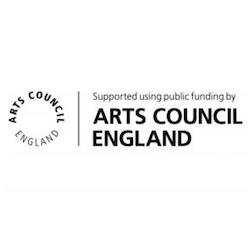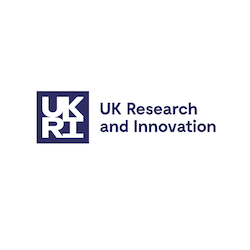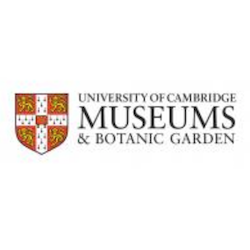The Museum of Archaeology and Anthropology (MAA) is a university museum which holds exceptionally important collections of artefacts, works of art, photographs and archival documents, representative of humanity’s history and the cultures of the world in the modern and contemporary periods. MAA was one of the first UK museums to return artefacts to a nation of origin (Uganda, in 1961) and has since been consistently committed to cultural exchange and collaborative scholarship involving local and Indigenous peoples associated with collections.
Collections have reached the Museum in many different ways. Some artefacts, in common with those in similar museums, were acquired in the aftermath of violence, as loot, or in other ways that would not be considered legitimate or appropriate today. The Museum is committed to transparency around the histories of the collections, and supports research towards better understandings of the institution's history.
The Museum will consider requests to repatriate material, and will do so on a case-by-case basis. MAA will engage with Indigenous representatives and other interested parties in an honest and respectful way, and embraces an open and responsive approach to questions around the future care, circulation and destinations of cultural property.
Potential claimants should note that some artefacts have been placed 'on deposit' at MAA, for example, by Cambridge colleges, which are charitable foundations separate from the University. In these cases, it may be necessary to for claimants to submit requests to other organisations; MAA staff will provide guidance and where necessary contact details.
For further information and guidance, please see the following document:
32 artefacts from the communities and kingdoms of Uganda returned to the Uganda Museum
In June 2024 the Museum of Archaeology and Anthropology returned 32 historic artefacts from Cambridge to the Uganda Museum in Kampala, as part of the Repositioning the Uganda Museum project. MAA looks forward to supporting the work of the Uganda Museum and partners to research the histories and contemporary significance of these objects, and to inform decisions about their future care. Further information about this important event, including a full list of the artefacts returned, can be found on the Repositioning Uganda Museum page.
Rachel Hand, Collections Manager for Anthropology at MAA, with Solomy Nansubuga and Alice Nanyombi assessing the condition of returned artefacts on arrival at the Uganda Museum, 10 June 2024
Four Australian Aboriginal spears taken by Captain James Cook returned to representatives of the La Perouse Aboriginal community
Four Australian Aboriginal spears taken by Lieutenant James Cook in 1770 from Kamay (Botany Bay) were repatriated back to Country on 23 April 2024.Trinity College and the Museum of Archaeology and Anthropology returned the Gweagal spears to representatives of the La Perouse Aboriginal community during a ceremony held in the Wren Library. The spears will be displayed at a new visitor centre at Kurnell, Kamay. Whilst the centre is built the spears will, at the request of the La Perouse Aboriginal Community, be cared for by the Chau Chak Wing Museum at the University of Sydney. Further information and reproductions of the speeches given at the event can be found on the museum's Digital Lab blog.
Quaiden Riley Williams (left) and David Johnson (right) during the repatriation ceremony. Image credit: Jenny Magee, 2024.
Four Australian Aboriginal spears taken by Captain James Cook to be returned to traditional owners
Four Australian Aboriginal spears taken by Lieutenant James Cook in 1770 from Kamay (Botany Bay) are to be repatriated back to Country.
Trinity College, Cambridge has agreed to permanently return the four spears to the La Perouse Aboriginal community. Trinity is now approaching the UK's Charity Commission to obtain approval for this transfer of legal title.
The spears were taken from Kamay (Botany Bay), at the time of first contact between the crew of the HMB Endeavour and the Aboriginal people of eastern Australia. James Cook recorded that 40 spears were taken from the camps of Aboriginal people living at Botany Bay in April 1770. Lord Sandwich of the British Admiralty presented the four spears to Trinity College soon after James Cook returned to England on the HMB Endeavour and they have been part of their collection since 1771. Since 1914 the four spears have been cared for by Cambridge's Museum of Archaeology and Anthropology (MAA). The four spears are all that remain of the original 40 spears collected.
Trinity College’s decision follows the establishment of a respectful and robust relationship over the last decade between the Cambridge Museum of Archaeology and Anthropology and the Aboriginal community at La Perouse. Discussions included representatives of the local Gweagal people - the Aboriginal group from whom the spears were taken - the broader Dharawal Nation and leading community organisations, including the La Perouse Local Aboriginal Land Council and the Gujaga Foundation.
The relationship between Cambridge and La Perouse will continue through collaborative research projects and community visits, once the spears have been returned to Country.
The La Perouse community is currently lending contemporary spears made by Senior Gweagal Clan leader Rodney Mason to the Cambridge Museum of Archaeology and Anthropology to show how traditional knowledge has been passed down, while adapting to new technologies.
After years of campaigning by local Aboriginal people, the decision by Trinity College followed a formal repatriation request in December 2022, from the La Perouse Local Aboriginal Land Council and the Gujaga Foundation. It is hoped the spears will return to Australia and the La Perouse Aboriginal community within months and the community plans to display the spears at a new Visitor Centre being built at Kurnell, Botany Bay.
In 2015 and again in 2020, some of the spears were returned temporarily to Australia, for the first time since they were taken by Captain Cook, and displayed by the National Museum of Australia in Canberra, as part of two exhibitions exploring frontier encounters. Since that time, the National Museum has worked with the La Perouse community to foster their relationship with Cambridge and is delighted with this outcome.
The spears will be permanently repatriated with the assistance of the Australian Institute of Aboriginal and Torres Strait Islander Studies (AIATSIS).
La Perouse Local Aboriginal Land Council chairperson, Noeleen Timbery said the spears would be preserved on country for future generations.
“We are proud to have worked with Cambridge’s Trinity College and the Museum of Archaeology and Anthropology to transfer the ownership of these enormously significant artefacts to the La Perouse Aboriginal community. They are an important connection to our past, our traditions and cultural practices, and to our ancestors. With assistance from the National Museum of Australia and AIATSIS we will ensure these objects are preserved for our future generations and for all Australians.
Our Elders have worked for many years to see their ownership transferred to the traditional owners of Botany Bay. Many of the families within the La Perouse Aboriginal community are descended from those who were present during the eight days the Endeavour was anchored in Kamay in 1770,” said Ms Timbery.
Dame Sally Davies, Master, Trinity College welcomed the decision to return the spears.
“Trinity is committed to better understanding the College’s history, and to addressing the complex legacies of the British empire, not least in our collections.
The College’s interaction with the La Perouse Aboriginal community, the University of Cambridge and National Museum Australia regarding the return of artefacts to the people from whom they were taken has been a respectful and rewarding process.
We believe that this is the right decision and I would like to acknowledge and thank all those involved,” said Professor Davies.
Dharawal Elder, Dr Shayne Williams said, "these spears are of immeasurable value as powerful, tangible connections between our forebears and ourselves. I want to acknowledge the respectfulness of Trinity College in returning these spears back to our community. In care for the spears for over 252 years, Trinity College has ensured that these priceless artefacts can now be utilized for cultural education by the Aboriginal community into the future".
The Museum of Archaeology and Anthropology Cambridge director, Professor Nicholas Thomas said he was honoured to have worked with the Kamay community to repatriate the spears.
“It has been immensely rewarding to work with the La Perouse community to research these artefacts and we look forward to extending the partnership into the future.
"The spears are exceptionally significant,” said Professor Thomas. “They are the first artefacts collected by any European from any part of Australia, that remain extant and documented. They reflect the beginnings of a history of misunderstanding and conflict. Their significance will be powerfully enhanced through return to Country," said Professor Thomas.
National Museum of Australia director Dr Mathew Trinca, said the Museum was delighted to have played a role in the spears’ permanent return to Country.
“We are delighted to have worked with the La Perouse Aboriginal community, Trinity College, Cambridge and the Museum of Archeology and Anthropology, to help facilitate discussions to return these historic spears to their cultural owners. This outcome follows a longstanding relationship between the National Museum and these parties and we look forward to continuing to work with the community to ensure the long-term care of these priceless objects,” said Dr Trinca.
Leonard Hill, Acting CEO Australian Institute of Aboriginal and Torres Strait Islander Studies (AIATSIS) said, “AIATSIS is pleased to assist the La Perouse community in bringing these objects back to country. Their return is a signal to our nation and the world that Aboriginal and Torres Strait Islander culture is respected, celebrated and valued.”
[From Media release of 2 March 2023]
Our approach to the return of Benin Bronzes
In 2017, the University of Cambridge hosted a meeting of the Benin Dialogue Group (BDG), which brings together European museums and representatives of the Government of Nigeria and the Royal Court of Benin. Since then, the University's Museum of Archaeology and Anthropology (MAA) has supported the BDG commitment to returning work to a major new museum in development in Benin City. In 2019, MAA, and the University of Cambridge Museums consortium, developed a new framework for the return of artefacts.
In January 2022, MAA received a formal request from the National Commission of Museums and Monuments in Nigeria for the return of items taken by British-led forces from Benin City in February 1897. Staff at MAA have identified 116 objects with a connection to the so-called Benin Expedition. The return was subsequently approved by the Museum’s Management Committee, University Council and the UK Charity Commission. Work is ongoing to implement the University's decision.
Some artefacts will remain at MAA, on loan, for the purposes of research and exhibition. The Museum and its Governing Body is delighted to be embarking on this new phase of collaboration, built upon an acknowledgement of ownership.
Click here to read our full statement on the return of Benin Bronzes.
Past claims and returns
In 1961, MAA was one of the first museums in the United Kingdom to return artefacts - a group of relics associated with the deity Kibuuka which were returned following a request by the then new government of independent Uganda. The objects were placed on display at the Uganda Museum, where they remain today.
The Museum does not care for collections of human remains (those held by the University are curated in the Duckworth Collection, in the Department of Archaeology) though a range of artefacts incorporate human remains, and there are some archaeological remains, such as bones preserved in European funerary pots. In 2005, the Museum returned moko mokai, preserved tattooed heads, to the Museum of New Zealand Te Papa Tongarewa. At that time, the Te Papa repatriation team preferred to undertake negotiation without publicity, and the return of the remains was not made public through the media.
Over the last twenty years, the Museum has received only a few claims for the return of artefacts. However, MAA is in close contact with initiatives such as the Return of Cultural Heritage project in Australia, and is a member of the Benin Dialogue Group. We share information concerning collections held in Cambridge with these networks and others, and contribute to planning towards the return of artefacts.
The formal claim most recently received, in November 2016, was from Rodney Kelly, a Gweagal man from Bermagui, south of Sydney. It sought return of four spears taken by participants in the first voyage of Captain James Cook, shortly after their arrival at Kamay (Botany Bay) on the east coast of Australia in April 1770. Following consideration by a sub-committee and advice from Indigenous and non-Indigenous sources in Australia, the claim was rejected, in part because it was not supported by the relevant representative Indigenous body, the La Perouse Local Area Land Council. The full report can be read here. However, the claim led to a series of meetings in both Australia and the UK, between MAA staff and Aboriginal representatives and researchers. Rodney Kelly was welcomed to the Museum on several occasions over 2016-19 and invited to meet staff and give talks to students. Three of the four spears were returned to Australia in March 2020 for inclusion in the 'Endeavour Voyage' exhibition at the National Museum of Australia. The spears were also displayed at the Chau Chak Wing Museum, University of Sydney, where they were made directly accessible to members of the local Kamay community.
Gweagal spears appropriated by Captain James Cook in 1770 (in glass case) exhibited alongside spears newly made by Gweagal artist, Rod Mason, in the Endeavour Voyage exhibition at the National Museum of Australia, 2020-21


